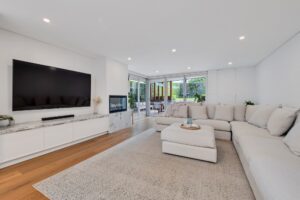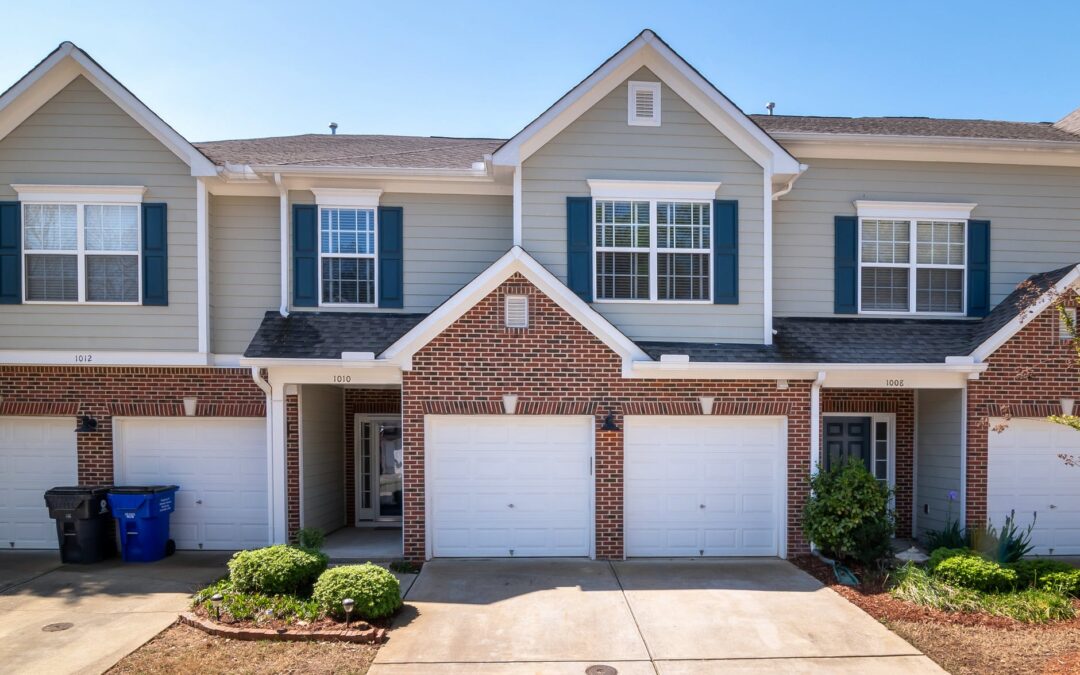In the diverse landscape of Australian households, the concept of extended families has taken root, encompassing not only multiple generations but often extending to include uncles, aunts, and cousins. While this living arrangement draws inspiration from time-honored practices across various cultures, it’s gaining prominence in modern Australian society. Families, driven by a tapestry of motivations including economic and social factors, are increasingly choosing to weave their lives together in a shared extended family house.
Beyond the financial and social considerations, the allure of strong familial bonds plays a pivotal role. It’s a sentiment we may not always voice, yet one that forms an integral part of our being. The idea of gathering closely-knit relatives during holidays might conjure images of joyful chaos, but it’s a prospect that warms our hearts. However, these connections often extend beyond the realm of special occasions. Some families find harmony in cohabiting under the same roof for extended periods, a testament to the enduring strength of kinship ties.
As we delve into the world of extended family living, we’ll explore both the advantages that strengthen these bonds and the potential drawbacks that come with navigating the complexities of a shared household.
Advantages
1. Shared Economic Obligation
One of the most substantial perks and rationale for families to move in jointly in an extended family house is that it is typically a more economical approach, and can alleviate financial stress on the family. Adult children frequently return to their parents’ homes as they establish their professional careers to support them in accumulating money in order to purchase their own property. Grandparents who are willing and in good health, can also contribute with the care of small grandkids throughout the day, saving the family a considerable sum of cash on childcare expenses.
2. Companionship
Another perk of having an extended family all living under the same roof is that everyone has the opportunity to devote quality time with their family members. Elderly parents may feel lonely if they are not surrounded by their close family and friends, but living in an extended family house can help them feel content. It is possible for every member of the family to seek companionship from one another and to share their problems, concerns, and duties with them. Each family member has the opportunity to see the daily activities of the other members in an extended family house.
3. Convenient Home Upkeep
Maintaining a household is also greatly simplified if you have a relatively large group of individuals with whom to distribute the strain of maintenance. While it’s true that your older parent may not be in the physical position to dig ditches or perform heavy-duty repairs, they may be able to facilitate you with various sorts of home maintenance that you would otherwise have to handle on your own.
4. Safety Net for the Socially Disadvantaged
The family is the most natural setting in which to address the requirements of each member throughout the course of one’s life in a loving and caring atmosphere. A social safety net that perceives the entire person: their spiritual, emotional, and physical needs as well as their various special circumstances, can be provided by the extended family.
This includes everything from housing to childcare to chauffeuring to cooking and cleaning to physical and mental health care to schooling, mortgages, making investments, and passing on important wisdom. When it comes to caring for one another, the extended family is a natural hub that can seek out the appropriate professional competence to cater for each person in a way that government policy can only attempt to replicate.
5. Support From Family
In times of financial or emotional distress, family members have also been found to be able to get assistance from wealthier and older family members. For example, a youngster is eligible for university, but his biological father is unable to afford the tuition. An uncle might be willing to sponsor that person’s schooling. When a sister is going to marry, all of her brothers and relatives band together to offer cash and in-kind assistance. A man’s death could leave his children without an inheritance or financial support. The children could be raised by the uncles and aunts in place of the deceased sibling. This is just an example of the advantages when a family live in an extended family house.
6. Brings Unity in Society
Another advantage of the extended family house is the way it fosters community togetherness by bringing the family together. The blood tie between all cousins, sisters, brothers, mothers, fathers, and other relatives brings peace, and this peace leads to unity that spreads throughout society.
7. More Socialization
As part of a family that lives in an extended family house, the children are raised not only by their biological parents, but also by other relatives such as aunts and uncles, grandfathers and grandmothers. One advantage of this method of child rearing is that children are raised to fit into the greater group or culture. The tendency to wander is much diminished.
8. More Family Time
Grandparents spend more time with their grandchildren; parents maintain contact with adult children; and elders communicate more with younger family members. These deeper familial ties can help everyone socially and emotionally when living in an extended family house.

Drawbacks
1. Parenting Interference
It’s possible that your grandmother could compliment your parenting efforts, or that your grandfather will dismiss your punishments while still taking the kids out for ice cream. In an extended family, it might be difficult to be tight with personal parenting conventions and patterns, and to maintain a hardline approach. Suddenly, everyone in the family appears to be taking on their own version of the parental position.
2. Bare Privacy
Privacy may be the most sizable casualty of in an extended family house. With so many people surrounding them, a married couple may not have enough space or time to chat. People who value their autonomy may feel uncomfortable on this scheme. A personal situation may become the business of the entire family, and there may be more interventions or meddling than one would prefer.
3. Minimal Intervention of Independence
Decisions made on an individual basis have no place in a shared family. You must adhere to the collective decision of the family, which may necessitate sacrificing some of your personal preferences or choices in the process.
4. Small Disagreements and Spats Escalate into Large-Scale Family Crises and Scandals
If you are having a disagreement with your sister over it and a family member overhears it and interjects, the entire dispute has a good possibility of spiraling out of hand. By the time you realize it, the disagreement has escalated into a major event — a tremendous family drama. The clash of opinions and interference of biases may add even more fuel to the fire, thus creating inner conflicts and an overall division in the family.
But given such, circumstances will still vary from one family to the other. Opting for an extended family house scheme will always bear with it the possibility of both joy and chaos in the process — whichever you make out of it. But if you intend to come to a halt on taking this path, Quantum Built will be with you every step of the way — to cater and establish a common ground among the family’s collective preference. Let’s make your extended family house experience one for the books! Consult with us today.
5. The Struggle of Inheritance
Another disadvantage of an extended family house arrangement is that disputes over who gets what portion of a member’s estate arise after his or her death. While a wealthy family member is still alive, some family members begin to target specific properties to inherit after they die. This does not bode good for the family’s harmony.
6. Interference In Relationships and Marriages
Also, because of the extended family house arrangement, people are sometimes forced to reside in family houses. As a result, people have the ability to comment on other members’ excellent or negative behavior. This can lead to disagreements. Interference in the marriages of couples living within the family compound is also open. Divorce is publicly advocated by some people. This could have a negative impact on a marriage that would otherwise be successful.
7. Misplaced Leadership Roles
Finally, in an extended family house system, leadership can occasionally be determined by a person’s financial resources. Some family members are influenced by the largesse they receive from a wealthy family member, and as a result, they are more likely to revere the wealthy family member than the natural family leaders.

Extended Family House Plan Suggestions
1. Contemporary Accommodation with a Guest House
This modern home is ideal for homeowners who wish to accommodate in-laws or parents who want to live with them while yet maintaining their independence and privacy. The house contains four bedrooms: a master bedroom with a closet or dressing area and a bathroom, two bedrooms on the second level, and a guest bedroom on the first floor. This bedroom is separated from the master suite, the great room, dining area, and kitchen by a bathroom. If another member of your family arrives with their car, there is space in the garage for three cars.
The guest wing is private enough to provide a guest or family member with privacy while still being close to the main area.
2. A Country Style Home
There are numerous options to personalize the area, and if you require a guest suite, it can be accommodated. The living area of this home is 3,043 square feet (not including the bonus space). It has four bedrooms when the guest suite is included. The first-floor master bedroom features two master closets and a big master bath. This area also has entrance to the covered patio, which is ideal for dining and entertaining outside.
The guest suite, which is located on top of the two-car garage, includes a bathroom, kitchen, and living area in addition to the bedroom. This apartment is ideal for families who require more space for parents or grown children returning home from college.
3. A Country House Plan
With 5,274 square feet of living space, this house design provides enough of space for family members. Three sets of French doors lead out onto the back patio on the ground floor, allowing plenty of natural light into the living room, dining room, and kitchen. The first-floor master bedroom has a separate sitting area, a spa-like master bathroom, and a dressing room, as well as access to the patio.
Three extra bedroom suites are located on the second floor, and the lower level can be expanded to accommodate an additional bedroom if necessary. A billiards or game room, as well as a home theater, can be accommodated.
WHY CHOOSE US?
As you embark on the journey of crafting your extended family living house, the value of experience cannot be overstated. Quantum Built stands as a testament to this, boasting a legacy of years in the field and a mastery of house plans tailored to the dynamics of modern extended families. When it comes to entrusting your home’s creation or transformation, longevity speaks volumes about a company’s expertise and reliability. We invite you to explore our comprehensive services and tap into our wealth of knowledge. Contact us today to unlock a world of possibilities for your dream extended family living space.

